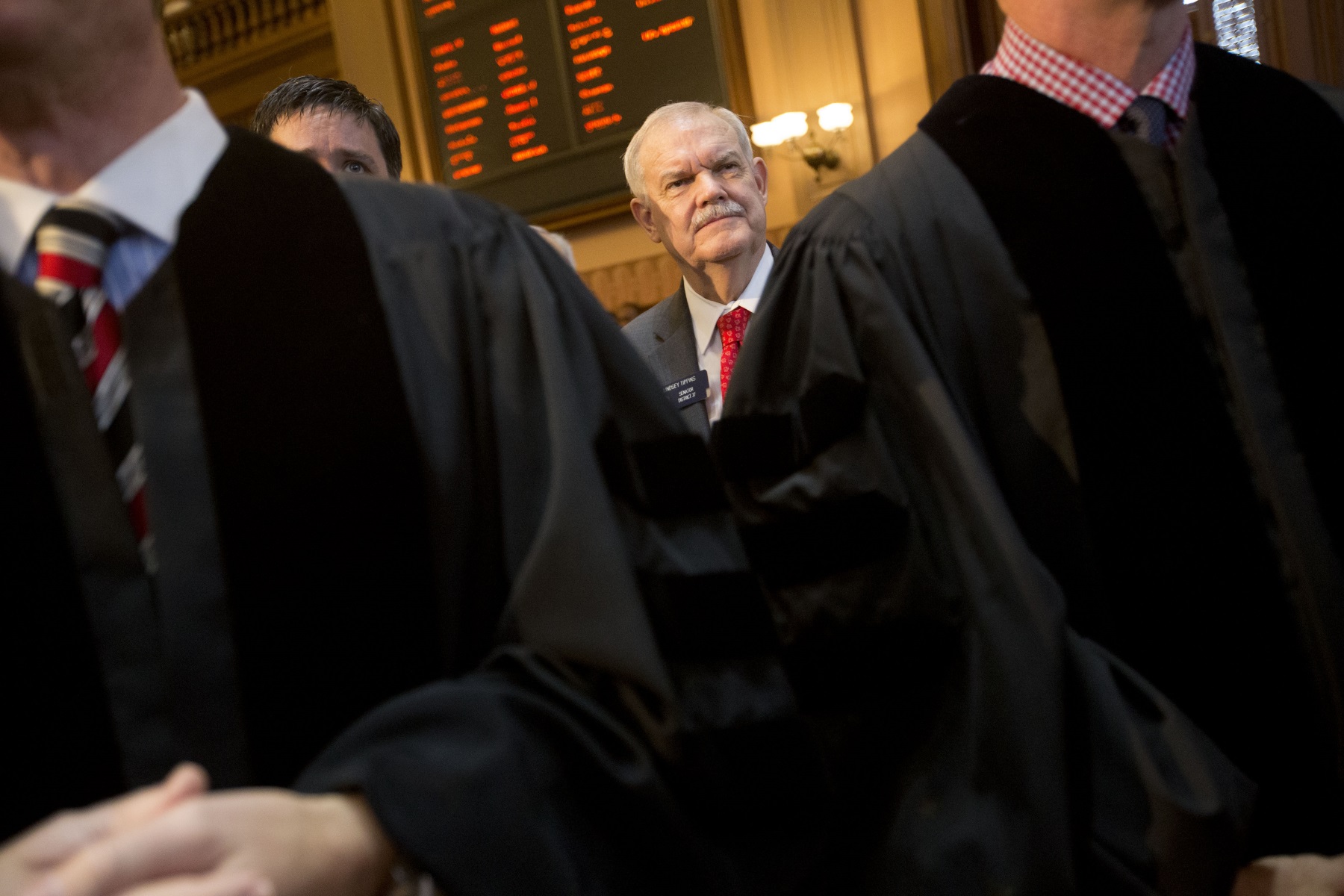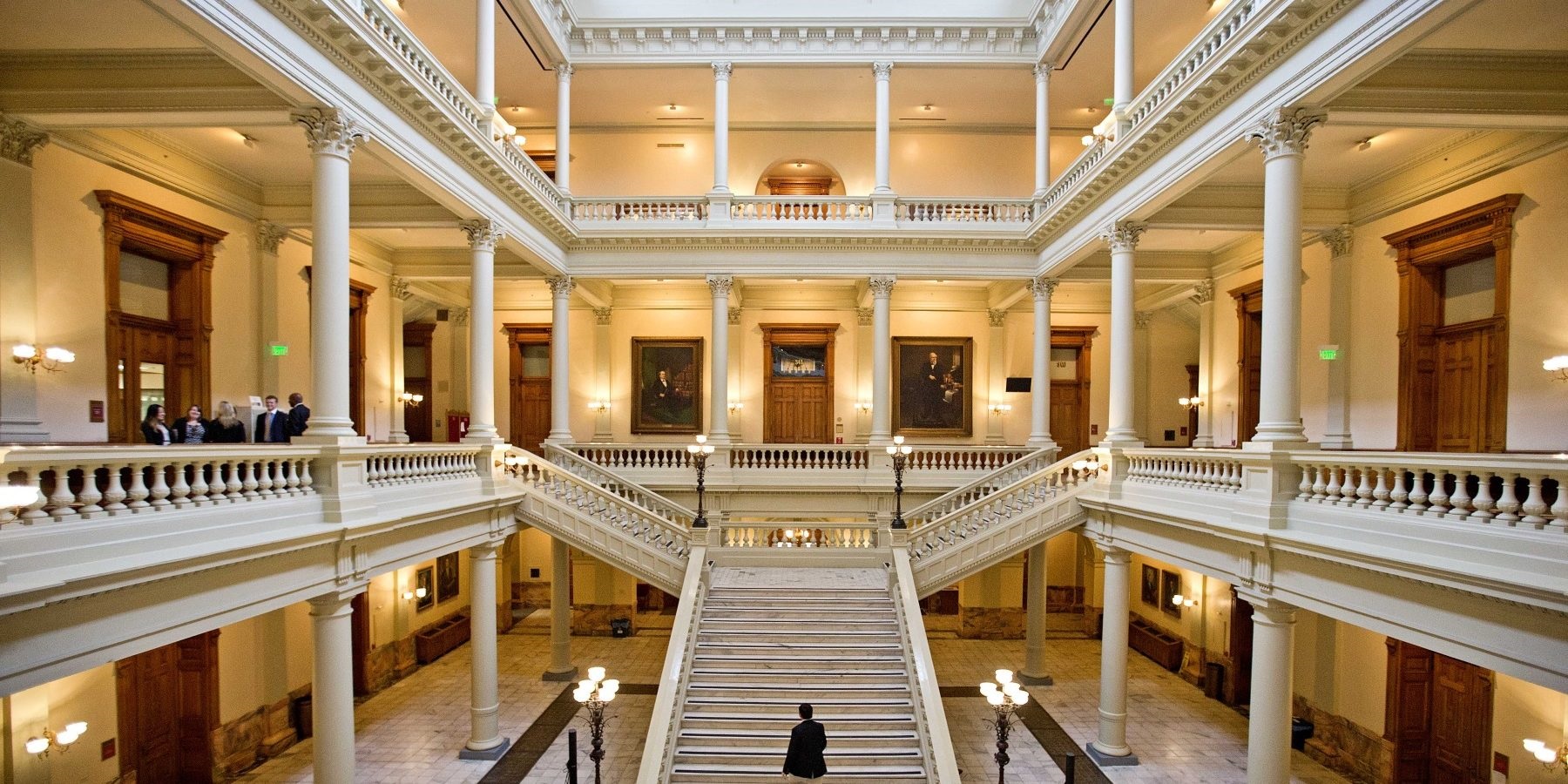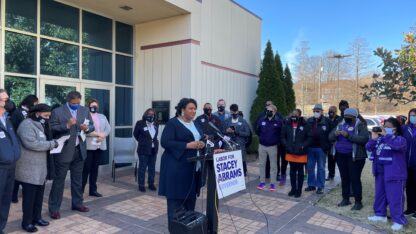New Proposal Would Exempt Ga. Schools From Plant Vogtle Tariff

State Sen. Lindsey Tippins, R-Marietta, looks over the shoulders of Georgia Supreme Court justices at the Capitol in 2015. Tippins is making another attempt to exempt Georgia’s public and charter schools from paying the Nuclear Construction Cost Recovery tariff, which covers financing costs for Plant Vogtle.
David Goldman / Associated Press file
For the second year in a row, Republican state Sen. Lindsey Tippins is hoping to exempt Georgia’s public schools and state charters from paying the Nuclear Construction Cost Recovery tariff, which covers financing costs for Plant Vogtle.
Vogtle is the nuclear power plant under construction near Augusta that’s about double its original budget and years behind schedule. It’s the only nuclear power plant under construction in the country. Since 2011, Georgia Power has collected about $2.5 billion from the tariff, which all Georgia Power customers pay.
Tippins introduced the bill last year, and it never got a hearing, but he’s trying again this year.
“I think those dollars that were appropriated for education, they should go to education. I have a problem with them paying a surcharge on a project that’s past due on budget and time,” he said. “This is an expenditure they ought not be having to make.”
Tippins chairs the appropriations subcommittee on K-12 education.
Tippins argues that the original idea of the tariff was based on the original construction schedule, which promised the two reactors would be completed by 2016 and 2017.
“Now clearly it’s two, three years late depending on how you may reckon the time,” he said. “I think the interest these school districts are paying, the time they should have been paying have far exceeded what the expectation was.”
Liz Coyle is executive director of Georgia Watch.
“Given how tight our school systems’ budgets are, and we still have teachers who need more supplies for the classroom, I’d much rather see that [money] allocated to the classroom and not pre-paying for a construction project that is already about five years behind schedule and about double in budget,” she said.
“Obviously, I think the company should not be able to collect that tariff from any of their customers at this point; they were supposed to stop in 2016 and 2017. But at least to ensure that our schools that are already having difficulties meeting their budgets, to have them be able to keep that is a great win for the state.”
On the subject of whether other groups should be exempt from the tariff, Tippins said: “I could probably, you could make a full array of arguments about who should or who not. I particularly am concerned about education funding, and that’s the reason I tailored the bill to have to do with public schools and state charter schools.”








